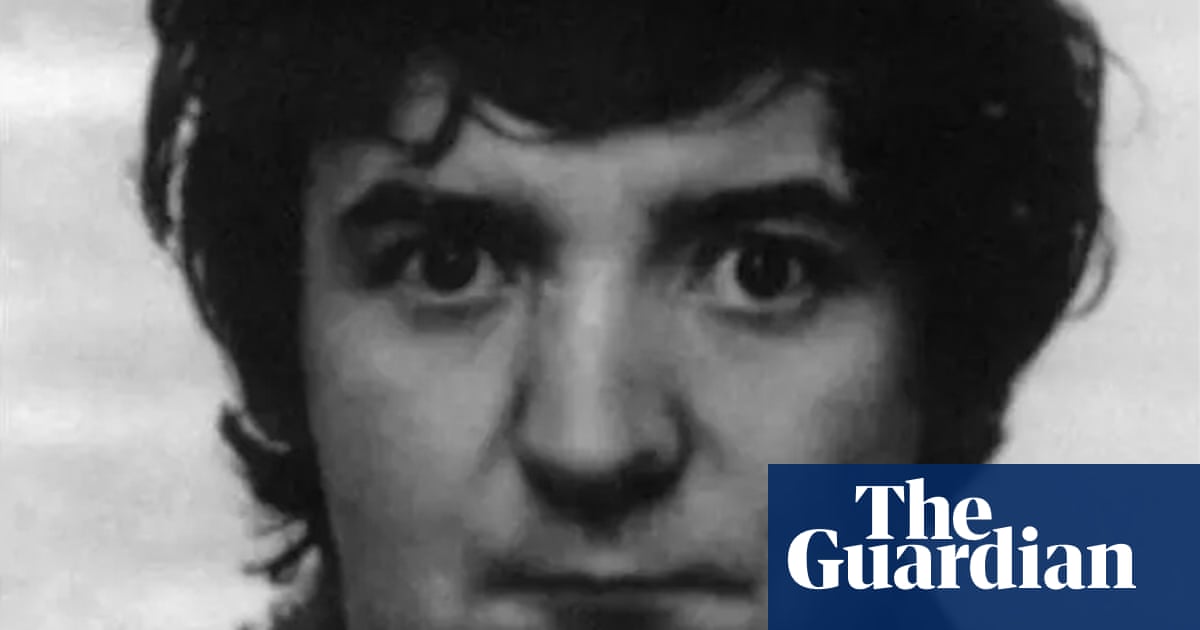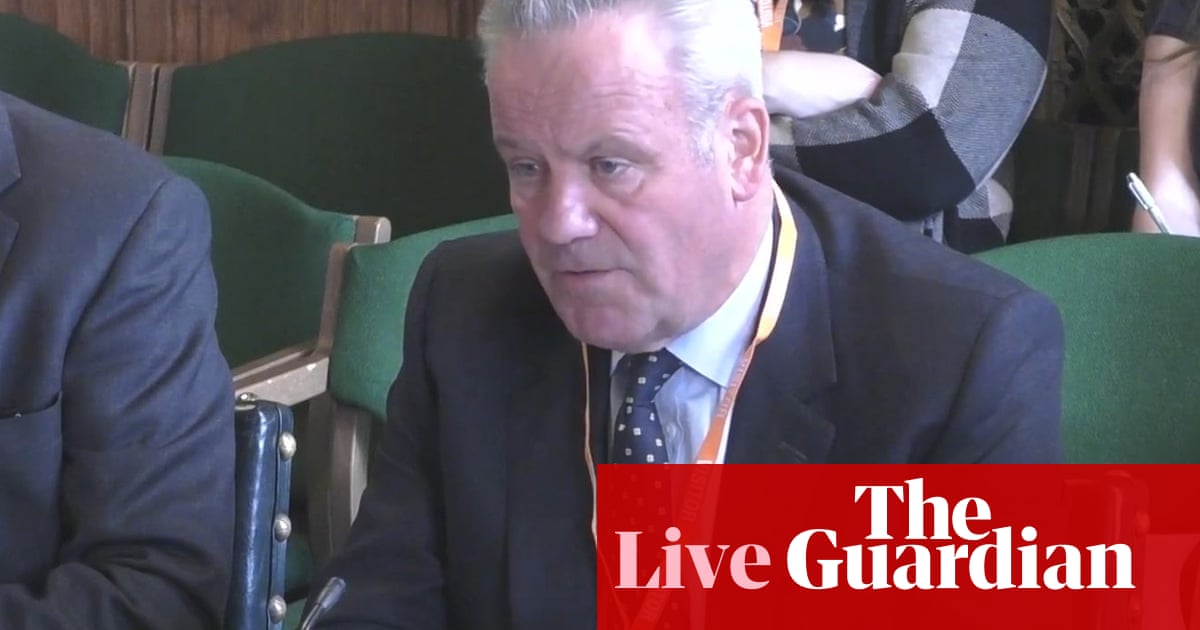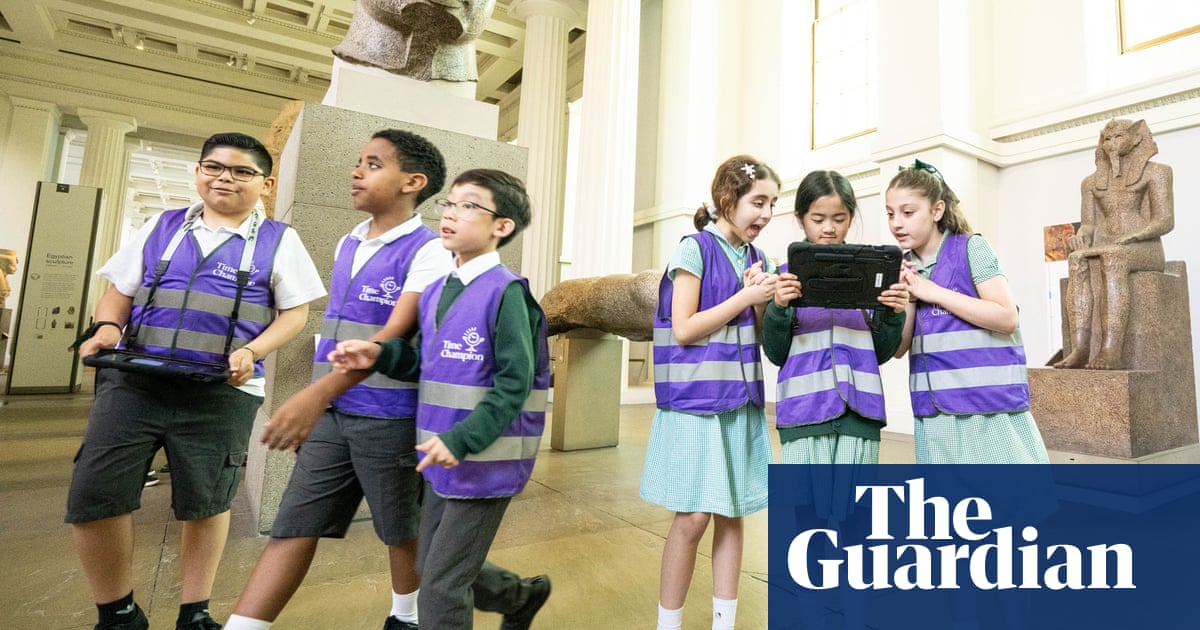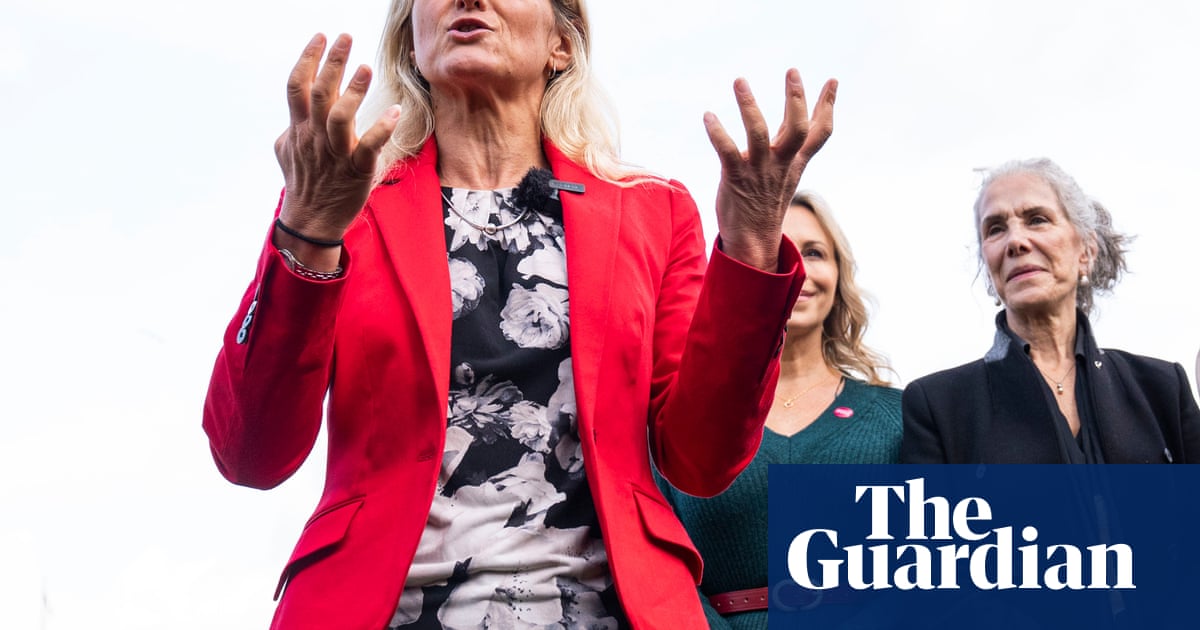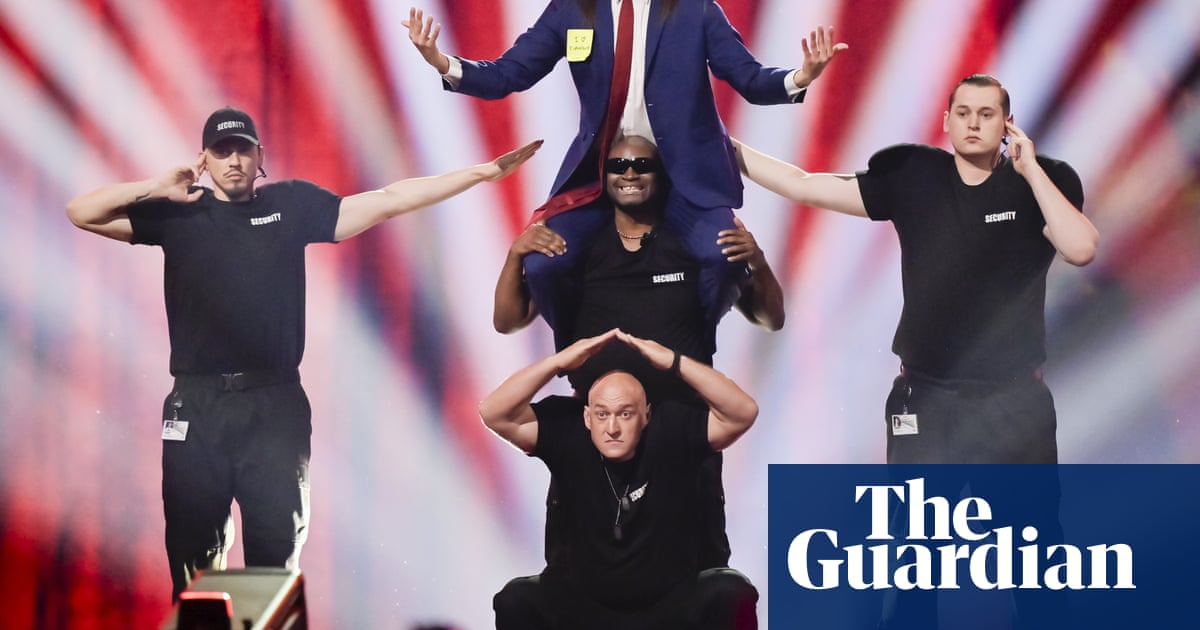What do couples counseling, a reality-singing competition, three cloned Yorkies, the content moderation of Paramount+ Germany and aviation safety all have in common? Virtually nothing, except the interest of television mastermind Nathan Fielder, who braids such disparate concepts together in the galaxy-brained second season of The Rehearsal.
In just four episodes, the genre-bending show of elaborate simulations – essentially, extremely realistic role-playing in the name of preparing people for uncomfortable situations – has provided some of the most compelling, bizarre and dementedly brilliant scenes on television this year: a shy commercial airline pilot on a first date, accompanied by 20 actors mirroring his every move. Fielder, sporting his series uniform laptop harness, peering into a “wrecked” cockpit through pretend flames. The sight of the Lizard Lounge – an exact replica of Brooklyn’s Alligator Lounge, where Fielder was tending bar just last month – inside an exact replica of a section of Houston’s George Bush airport. And in a scene that was shockingly transgressive even for a docu-comedy auteur who has built a career on stretching the outer boundaries of reality television, the sight of Fielder, shaven, rubber-capped and diapered, suckling from the papier-mache teat of a puppet 50s housewife as part of a canonically insane, deeply sincere attempt to relive the life – and thus absorb the wisdom – of Captain Sully Sullenberger (of Tom Hanks biopic, crashing into the Hudson fame).
If you haven’t seen The Rehearsal or aren’t acclimatized to Fielder’s ultra-cringe brand of experimental comedy, this likely sounds deeply off-putting, tedious and/or nonsensical. And it is – Fielder’s comedy, which could more accurately be described as Rube Goldberg-esque social experiments pursued to such absurd ends and with such deadpan narration as to produce laughter, is deliberately alienating. Zigging where others would zag, getting hung up on what others would glide past, building arcane in-jokes with long-simmering payoffs in the lane of erstwhile prestige TV dramas, it is television probing the human condition – how people think, why they behave a certain way, how they react to off-script social interactions – that is difficult to explain to other humans, difficult to follow and at times difficult to watch.
And yet, it is appointment television, a truly singular meditation on artifice and authenticity, performance and sincerity, that has only improved with its second season. The Rehearsal’s first outing, which aired in 2022, introduced audiences to Fielder’s particular strand of neuroticism and apparent negotiating power at HBO; over six episodes, he constructed numerous simulations to approximate a potential real-life experience, primarily oriented around one woman’s deliberation over whether or not to have a child (in one of the show’s dicier and rightfully critiqued bits, Fielder played father to a real toddler). Fielder’s genius lies as much in episodic structure as in performance of his affectless producer persona – The Rehearsal marked a graduation, of sorts, from the harebrained business schemes of his Comedy Central series Nathan For You to becoming the Penn & Teller of television, pulling off sleights of hand while showing the strings and delivering the most monotone “abracadabra” imaginable, with a revelatory commitment to, as one fan put it, letting the camera linger long enough to reveal someone to be the weirdest person alive.
With the six-episode second season, Fielder has leveled up the scale and stakes of his magic tricks, while further interrogating the production, assumptions and experiences that go into producing reality television, in service of a seemingly noble and topical aim: aviation safety. Fielder theorizes that the No 1 understudied cause of plane crashes is human error compounded by a breakdown communication in the cockpit. Co-pilots, for whatever reason, do not correct pilots when they make a mistake. Based on the number of real crashes Fielder’s team re-enacts, with obligatory virtual explosions, via flight simulator in the first episode, this seems to be a reasonable hypothesis. But to prove it, Fielder embarks on a characteristically intricate and involved series of experiments, from recreating the life conditions of a 2011 dog for its clone – the better to test nature v nurture – to encouraging a co-pilot to confront issues with his girlfriend during a simulated flight.
There’s a certain hyper-competency pleasure to seeing these scenarios play out, to seeing someone’s imagination given this much financial and legal runway. But the series is most satisfying, to this TV fan, as a grand deconstruction of the rules of reality TV through elaborate role-play. The fourth episode dissects the series-long assumptions behind hiring actors to say certain lines of dialogue or perform certain scenarios, questioning the logic behind any suspension of disbelief. And one of the series’ many side quests include the elaborate staging of an aviation-themed singing competition modeled on Fielder’s experience as a 23-year-old junior producer for Canadian Idol – the northern spinoff of American Idol – where he was tasked with rejecting hopeful singers who did not exhibit “star potential”. The meditation on what makes would-be off-screen staff better at an unenviable task is at once fascinating and practical; theoretically, co-pilot judges – selected because they all share the quality of having not died in a plane crash – who practice rejection would be better prepared to stand up to stubborn captains.
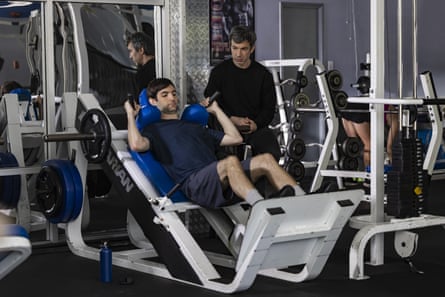
Wings of Voice has, like all of Fielder’s work, drawn criticism for psychological manipulation and false representation. On Monday, participant Lana Love broke a show NDA to claim that she lost $10,000 and was tricked by the shows producers into thinking she was on a real singing competition show and not, as Fielder calls it, “a singing competition as part of another TV show that has nothing to do with singing”. A level of manipulation is baked into the Fielderian worldview and school of acting, though I’d argue that, at this point, his methods are easily Googled and the subject of the show’s ultimate critique. The Rehearsal season two is, in my view, the least ethically fraught of Fielder’s output (and that includes his dramatic turn on HGTV satire The Curse). The show’s overarching illusion works because it serves an overall purpose more pointed than the original aim to “better understand the human condition” – it’s impossible to tell how serious Fielder is about changing Federal Aviation Administration training requirements around flight simulations to encourage better cockpit communications, but he seems serious enough about it to devote six episode of expensive television to the cause, with an added argument for pilots to get better therapy.
And with a sly, deceptive heart. In the most recent episode, which aired on Sunday, Fielder helps a shy co-pilot named Colin improve his nonexistent romantic life by practicing a first date, with a twist. Having watched enough nature documentaries to know that some animals function well in packs, Fielder recruits a dozen or so actors to hover around Colin, mimicking every move and word, the idea being that it’s easier to do things when you’re not doing it by yourself. It’s very possible that the bashful, social cue-averse Colin was also an unstated actor. Fielder, of course, has his own motives as master puppeteer; the image of Colin sipping coffee echoed by a chorus of other faces does indeed make excellent television. But it also made me tear up, this surreal, distinctly Fielder hack to the unavoidable loneliness of being alive, to the universal discomfort of social awkwardness and personal insecurity. It fails, of course. The show purports to believe that all human behavior can be taught, that all emotions can be simulated and thus controlled. Both the magician and the audience know that life doesn’t work that way, but what a wonder to pretend otherwise.

 4 hours ago
5
4 hours ago
5

